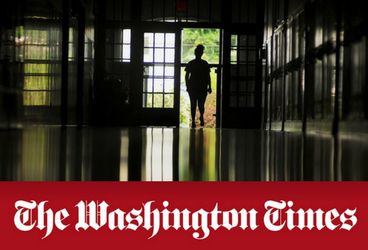
September 22, 2017 |
The Washington Times | With teens at risk of substance use disorder, activists see need for more recovery high schools
Laura Kelly, The Washington Times, September 21, 2017
With Recovery Research Institute Founder & Director Dr. John F. Kelly
{EXCERPT}
Dr. John Kelly, the founder and director of the Recovery Research Institute at Harvard Medical School and Massachusetts General Hospital, is a supporter of recovery high schools. He said each major city in the country should have at least one.
“Given how prevalent substance use disorder is and the highly promising data emerging from the recovery high school research, I think every region at least should have one so that we can support recovery for our most vulnerable young people,” he said.
“One of the big hazards for young people is the environmental exposure to other young people who are using substances. So anything we can do to make their environments more supportive or more conducive to recovery, that is going to help them avoid exposure to drug-related cues. That’s a good thing.”
Dr. Kelly said the long-term efficacy of recovery schools is limited. It’s also unclear whether aspects of these schools could be incorporated into more traditional schools, which may be more cost-effective.
“We don’t know the answer yet because that study’s not been done,” he said.
He added that introducing recovery-specific programs in regular high schools could have a positive influence on the general school population by promoting healthier lifestyles without drugs and alcohol. “This is typically what is done in college settings,” he said.
“There’s arguments to be made for at least testing that out with high schools” he said.

